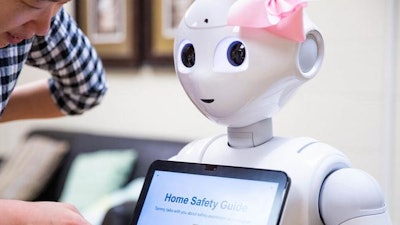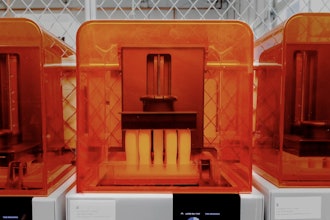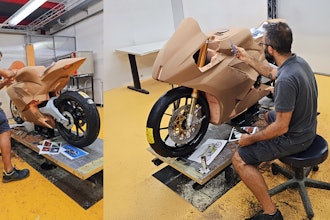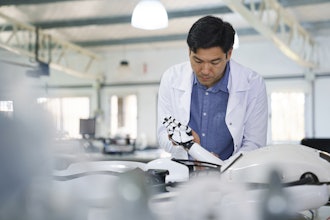
Xiaopeng Zhao, a professor in the Department of Mechanical, Aerospace, and Biomedical Engineering and founding director of the Applied AI Program in the College of Emerging and Collaborative Studies at UT, is part of a collaborative team that has been awarded a $401,090 grant from the National Institutes of Health.
The team received the multi-year funded grant for the project “Robot-based Information and Support to Enhance Alzheimer’s Caregiver Health (RISE).” The research is supported by the National Institute on Aging of the NIH.
The project aims to develop an AI-powered system (RISE) to disseminate important educational information to the Alzheimer’s community. Using a state-of-the-art humanoid social robot integrated with cutting-edge AI tools, RISE delivers evidence-based caregiver training information derived from Resources for Enhancing Alzheimer’s Caregivers Health (REACH) II and REACH VA programs.
Alzheimer’s disease and related dementias (ADRD) are progressive diseases that destroy memory and other important mental functions. They can have a significant impact on people with ADRD and their caregivers.
“Our goal is to provide essential, targeted information tailored to the specific needs of caregivers and individuals with ADRD,” Zhao said. “By leveraging advanced AI and robotics technologies, we aim to enhance engagement and make critical caregiving information more accessible.”




















